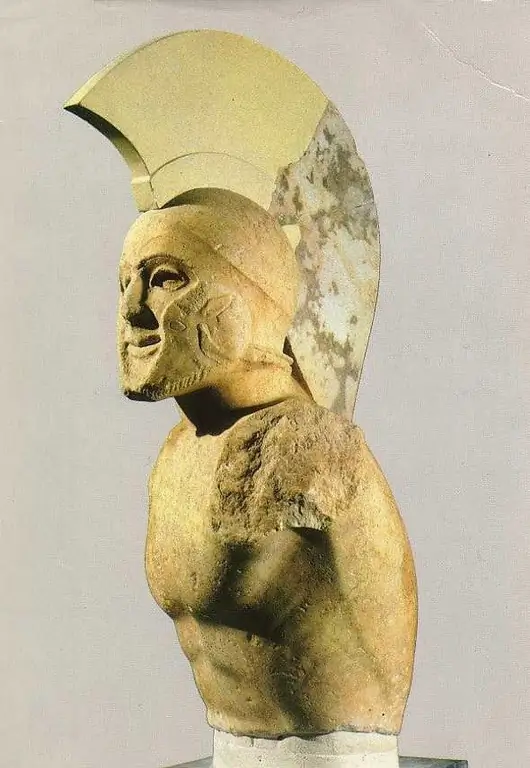- Author Antonio Harrison [email protected].
- Public 2023-12-16 07:44.
- Last modified 2025-01-22 21:44.
Herodotus is a Greek historian who traveled a lot during his life and then wrote down his observations. He lived in the 5th century BC. The records of Herodotus are of great historical value, since the information contained in them is unique, many of them cannot be gleaned from other sources. Plus, they are very accurate. Modern scientists have confirmed the reliability of almost all the facts given by Herodotus that could be verified.

The exact dates of the life of Herodotus are unknown, but it was possible to establish that he was born between 490 and 480 BC, and died around 425 BC. His homeland is the city of Halicarnassus, located in the southwestern part of Asia Minor. Herodotus had an active civil position. A tyrannical power was established in his city, and in the course of the struggle against it, he incurred the wrath of the authorities, they began to persecute him, so the future historian was forced to leave his native place.
After that, Herodotus settled in Samos, but did not stay there in peace, but began to travel a lot. He surveyed a significant part of Greece, many islands of the Aegean Sea, Egypt and Libya, Phenicia and Babylon, Sicily and Italy. Scientists suggest that the "father of history" also visited the Black Sea coast.
After the main part of his wanderings, Herodotus began to live in Athens, where his versatile knowledge aroused the interest of people like Pericles and his followers. At that time, an environment consisting of scientists and cultured people developed in the capital of Greece, Herodotus also entered it. This man, having extensive travel experience behind him, communicated with the smartest people of his time, and all this helped him write a work that can be considered the first serious historical evidence. "History", written by him, is a very popular scientific document today. It consists of nine parts, each of which is dedicated to one of the muses and is named after her.
The work of Herodotus at different times was evaluated very differently. Even in ancient times, in the period BC, he was criticized by people like Aristotle and Plutarch. They believed that Herodotus was not accurate enough. Later, during the Middle Ages, the work of Herodotus was highly valued in Europe, and the information described in it. They were considered undeniable. But since the 18th century, people again began to doubt that the facts stated by Herodotus were true. However, modern research confirms them. It turned out that Herodotus was much more accurate and impartial than other historians of his time and those who lived and wrote after him.
He himself, starting his work, writes that he will describe both large and small cities with equal attention, since he saw how great cities became small or completely disappeared, and completely insignificant settlements developed and turned into large ones. Herodotus, concluding that human happiness is changeable, felt that it was necessary to treat with equal attention everything that he met on his way and that he knew.
It is for this impartiality and accuracy of the stated information that Herodotus is called the father of history.






